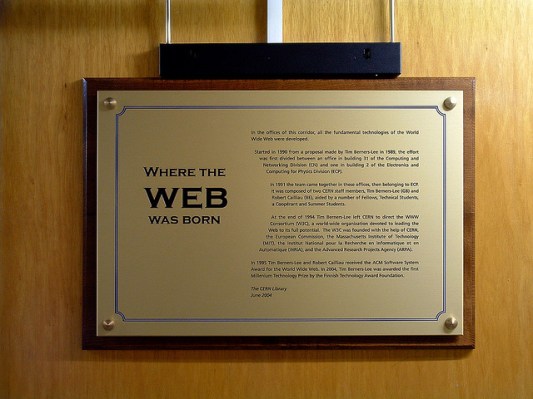Tim Berners-Lee, the man who pioneered the interconnected information management system we now know colloquially as the Web (he called it the World Wide Web), has called for an online Magna Carta to protect the openness and neutrality of the Internet.
Speaking in an interview with the Guardian newspaper 25 years after he wrote the first draft of the proposal of what would become the Web, Berners-Lee warned that its neutrality is under sustained attack from overreaching governments and corporates — and an online “Magna Carta” is needed to protect and enshrine its independence.
Berners-Lee’s original vision for the World Wide Web was a universal linked information system and also a collaborative tool, helping scientists and others to work together. In the event, the Web initially became primarily a publishing platform for the dissemination of information. But as more and more data has found its way online, the impetus of authorities and corporates has inexorably shifted to harvesting information, not just putting it out there.
And the manipulation of the Web’s function in recent years — from informational resource to a repository of personal data that dragnet government surveillance programs can (and do) dip into at will, and from which corporates can (and do) build mountains of interconnected intel on their users, has steered Berners-Lee’s original collaborative vision in a much darker and dystopian direction.
Speaking to the Guardian today, Berners-Lee argued for the need for “a global constitution – a bill of rights” to protect online freedoms — and indeed, freedoms in general.
“Unless we have an open, neutral internet we can rely on without worrying about what’s happening at the back door, we can’t have open government, good democracy, good healthcare, connected communities and diversity of culture. It’s not naive to think we can have that, but it is naive to think we can just sit back and get it,” he told the newspaper.
Core issues that an online bill of rights should seek to defend are principles of privacy, free speech and responsible anonymity, according to Berners-Lee.
“Our rights are being infringed more and more on every side, and the danger is that we get used to it. So I want to use the 25th anniversary for us all to do that, to take the web back into our own hands and define the web we want for the next 25 years,” he added.
In January last year, before NSA whistleblower Edward Snowden divulged the extent of government intelligence agencies’ dragnet digital surveillance programs, Berners-Lee was calling for more online innovation to break down global cultural boundaries, and for the creation of new types of business models and online protocols to support payments for content creators.
At the time he also expressed frustration at the walled off silos of online data being amassed by social networks. But he stepped up his criticism in November last year, after the fallout from Snowden’s revelations, blasting the “insidious” and “chilling” effects of online surveillance.
Now, he’s backing a call for mass, global action to push back against overreaching surveillance programs of all stripes. His call for an online Magna Carta has been incorporated into an initiative being run by the World Wide Web Foundation — that’s been called ‘the web we want‘ — which is rallying Web users to stand up for online freedoms in their respective countries and kickstart change.
Berners-Lee said the campaign is calling for Web users to help with the drafting of an Internet Users Bill of Rights for every country — with the ultimate aim of creating a shared ‘document of principle’ to provide an international standard for the values of the open web, yet one which still allows for variation for regional regulation and cultural sensitivities.
“The key thing is getting people to fight for the web and to see the harm that a fractured web would bring. Like any human system, the web needs policing and of course we need national laws, but we must not turn the network into a series of national silos,” he added.
Berners-Lee also spoke out in favour of removing U.S. control of the dominant database of Internet domain names — to better reflect the global character of the Web.
“The removal of the explicit link to the US department of commerce is long overdue. The US can’t have a global place in the running of something which is so non-national. There is huge momentum towards that uncoupling but it is right that we keep a multi-stakeholder approach, and one where governments and companies are both kept at arm’s length.”
